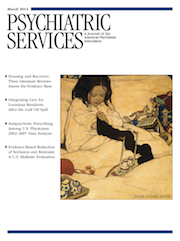The Trial of Dr. Kate
The novel The Trial of Dr. Kate is about Kate Marlow, a small-town physician who is on trial in 1952 for the murder of one of her patients. Dr. Kate is a functioning alcoholic who cannot remember anything about what happened the day her patient died. Although the story is told in the third person, the reader benefits from the perspective of Shenandoah Coleman, a spunky reporter from the wrong side of the tracks who returns to her hometown of Round Rock, Tennessee, to cover the trial.
The author, Michael Glasscock III, is a retired physician who, according to his Web site, has an adjunct faculty appointment in otolaryngology at Vanderbilt University. He has written other novels and short stories and maintains an active blog.
There are a number of things wrong with The Trial of Dr. Kate. The story is peopled with every 1950s small-town character stereotype imaginable. There is a good-hearted boardinghouse keeper, a mean sheriff, an earnest young African-American man trying to better himself despite prejudice, and a charming Southern “bad boy.” Then there is Dr. Kate, who has functioned remarkably well (and attracted little attention) despite constant, ongoing alcohol use. She cannot remember what happened at the time of the death. An implausible plot development involves Dr. Kate weaning herself off of alcohol while imprisoned in a small-town jail by having a flask smuggled in to her and drinking decreasing amounts daily. The novel, which is dedicated to Bill W. and Dr. Bob, mentions 12-step meetings but does not directly discuss them. And recovery from ETOH dependence, while an important element, it is not really the focus of the story. The novel builds up to a trial but is not really a courtroom drama. There are interesting ethical issues that arise at the end, but the story finishes without exploring them.
But I really liked The Trial of Dr. Kate. The book is infused with a lovely sense of nostalgia for simpler times. It clearly was written by someone who remembers the early 1950s and shows genuine affection for small towns. When Dr. Glasscock describes fried chicken and cornbread, the reader drools. If the sheriff had been nicer, smarter, and more compassionate, the book might have been set in Mayberry. And The Trial of Dr. Kate, even when it pales by comparison, reminds one of other novels: Chicken Every Sunday, the Mitford series, even To Kill a Mockingbird.
I am uncertain about a mental health audience for The Trial of Dr. Kate. Dr. Glasscock understands a lot about people. Some of the characters have some psychopathology, but this is not a focus. While Dr. Kate’s alcohol addiction is addressed directly, there is not here much for the reader to learn. Discussion questions in the back of the novel appropriately suggest a book club audience. I would recommend the book to readers of novels who enjoy a good story, well told. I will be taking my copy to my mother, who told me she needs something to read; she will love it.



